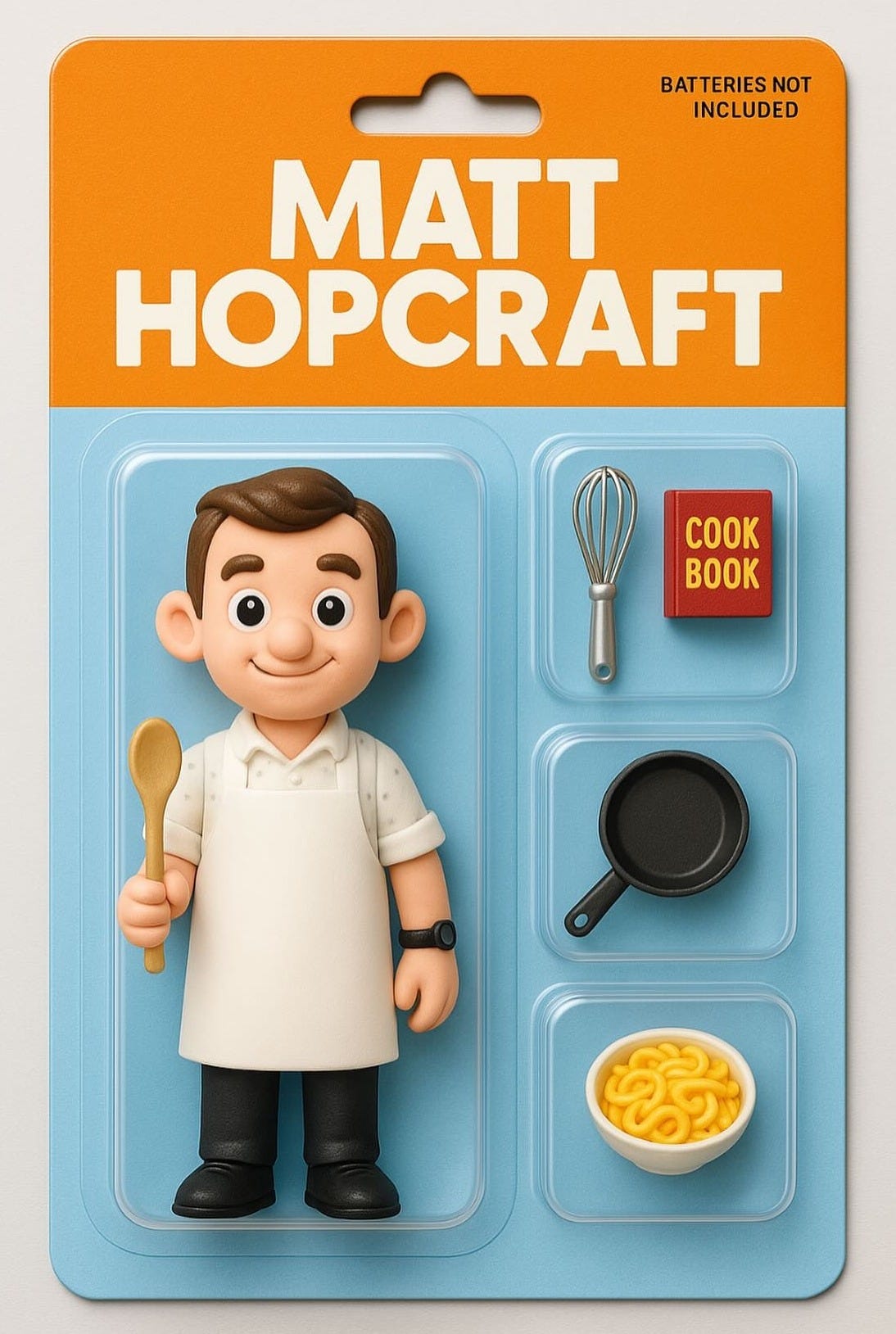Life’s full of choices, just make one.
We are faced with decisions on a daily basis, but often find it easier to stick to the main road rather than veer down a side track.
As many people might now be aware, I’ve been in the media a bit right now. And I don’t mean the news and current affairs shows advocating for Medicare and dentistry, but in the reality TV furnace of the MasterChef kitchen seeking redemption with a second chance to win that elusive winner’s trophy.
The question that I am most commonly asked right now is why? Why would you put yourself through all of that again? In some ways, it’s an easy question with a complicated answer, but in other ways it is a complicated question with a very simple answer. So I’ll give you the easy answer.
Life is full of choices, a series of doors that we can choose to walk through or walk past. For many people, choice can lead to indecision. Analysis paralysis occurs when we have too many decisions to evaluate, and the more options there are, the harder it becomes to choose one. Particularly when those decisions are important, or the choices – and consequences – are complex. Weighing options is mentally exhausting. But this can also occur when there are just two options – to do something or remain with the status quo.
People don’t make decisions based on what’s the most important, but based on what’s the easiest to evaluate. Barry Schwartz, psychology professor
For people with perfectionist tendencies, there is often anxiety about making the correct choice. These people seek certainty, looking for absolute assurance in the outcome. They find it hard to embrace uncertainty. And let me tell you that reality television is all about uncertainty. Not knowing who the guest chef will be, what ingredients you have to cook with or the nature of the challenge. It’s not for the faint hearted. The anxiety is real.
The more a decision problem seems complex, the more we tend to choose the default option. Dan Ariely, psychology professor
There is safety in the status quo, something comforting about the warm embrace of the familiar. It’s hard to take a risk, especially for people who have been conditioned their whole professional life to be risk averse, to control their environment in every way manageable to reduce any possibility of error. Who wants to paint a target on their back, or stand out from the crowd?
So it takes a certain amount of courage to walk through that door, to make a decision to step off the well-trodden path. To put yourself out there, to be judged, to be vulnerable. And I don’t just mean being judged in the kitchen. That’s tough enough. But knowing that every day on social media and in lounge rooms and around water coolers, people are making judgements – about our appearance, our cooking, the way we talk or laugh. Concerns about what others will think often plays into decision making, and can be another handbrake.
People ask, ‘Why would you put yourself out there to be judged like that?’ To risk public shame and humiliation. It’s hard to explain, because fear of failure is an over-riding self-preservation mechanism. No-one in their right mind would put themselves in a position of physical danger, so why would you put yourself in a position of emotional or psychological danger? For me, I think that this is exactly where growth occurs – in the cracks that develop when the pressure starts to mount. It’s what you learn about yourself when you face the unknown, when you fail and are forced to pick yourself up and try again. It is the immense reward that comes from the risk. It’s not about the trophy. Winning or losing. It’s about challenging yourself, pushing the limits to see what you are capable of.
Ultimately, it’s a way finding out who you really are. And of course, this applies to the range of decisions that we are faced with across the course of our lives, both professional and personal. Do we avoid making a bold decision because we fear failure, or worry what others will think? And in doing so, do we miss an opportunity for growth?
I am reminded of Theodore Roosevelt’s speech ‘Citizenship in a Republic.’
It is not the critic who counts; not the man who points out how the strong man stumbles, or where the doer of deeds could have done them better. The credit belongs to the man who is actually in the arena … because there is no effort without error and shortcoming.
Or perhaps Lord Tennyson's poem ‘In Memoriam A.H.H.’
‘Tis better to have loved and lost, Than never to have loved at all.
To truly appreciate the highs, you must be prepared to experience the lows. Take a risk. Because I think the real risk is not opening the door and stepping through, but walking past and missing an opportunity. The risk is the status quo. Stagnation.
Life’s full of choices, just make one.





